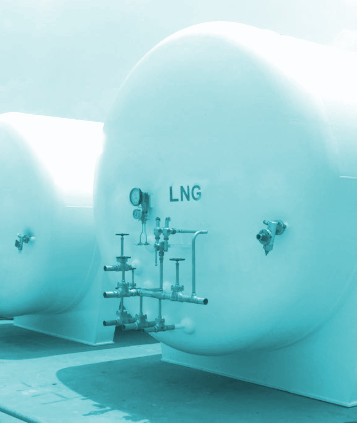LNG transition slammed
 A new report belies the idea that burning LNG is better than burning coal.
A new report belies the idea that burning LNG is better than burning coal.
The Institute for Energy Economics and Financial Analysis (IEEFA) says emissions from natural gas have been dangerously underestimated.
Australian politicians and their colleagues in the fossil fuel industry often claim liquified natural gas (LNG) can be used as a “transition fuel” in the shift away from coal, as it allegedly ‘burns cleaner’.
“The industry claims burning fossil fuels such as ‘natural’ gas is cleaner than burning coal, a commodity on its way out as the world transitions to cleaner more sustainable energy sources,” IEEFA gas analyst Bruce Robertson said.
“This is simply not the case. Gas is worse than coal in the short term due to its release of methane into the atmosphere.
“Since 2012, peer reviewed studies have shown ‘natural’ gas emissions have been underestimated by at least 25 to 40 per cent, with some studies suggesting as much as 60 per cent.
“If you leak more than 2 per cent to 3 per cent of methane, it is worse for the climate than coal
“As every state and territory in Australia has set a target for a 50 per cent reduction in emissions by 2050, gas, like coal, is simply not going to get us there.
“In fact, gas and LNG is looking like a very bad investment with companies misleading shareholders and the general public about the true effects of their products.”
Methane survives in the atmosphere for a shorter period than coal’s carbon dioxide, but has 86 times the planet-warming potential.
Global emissions of methane are increasing rapidly as the gas industry continues to expand.
While the coal industry is struggling, Australia’s gas industry – supported by the government – is proposing a long list of new gas projects, both onshore and offshore.
The gas industry and the politicians that back it are using the ‘transition’ narrative to embed LNG into the energy future of Australia.
This include proposed gas projects at Narrabri in New South Wales, the Galilee and North Bowen Basins in Queensland, shale fracking in the Northern Territory’s Beetaloo, major onshore and offshore projects in north-west of Western Australia, new provinces in the south of South Australia, and lobbying to open up onshore gas in Victoria.
“The government says gas is a transition fuel,” Mr Robertson says.
“Instead, this long list of hugely expensive infrastructure projects shows the gas industry is using the transition narrative to embed itself into the energy future of Australia in the long term, crowding out other sources of power, while lying about the effects of its product on climate change, and therefore people’s day-to-day lives.
“Not only is this a massive stranded asset risk we will all have to carry, the industry’s deception is carrying its investors and shareholders, and banks and insurers into a dark place.”








 Print
Print